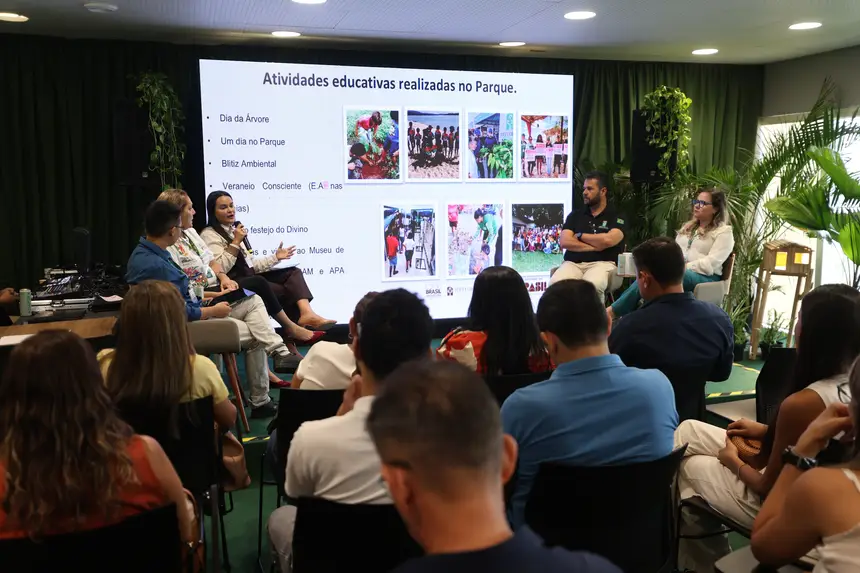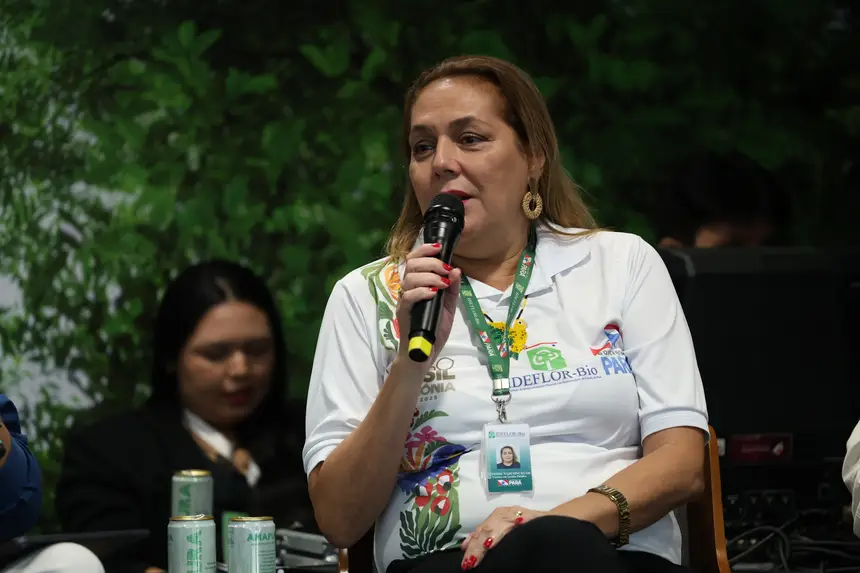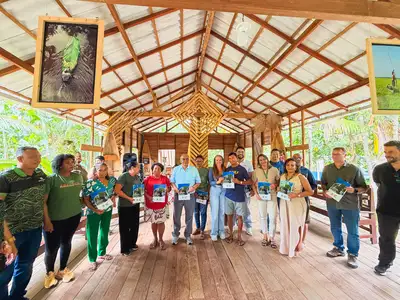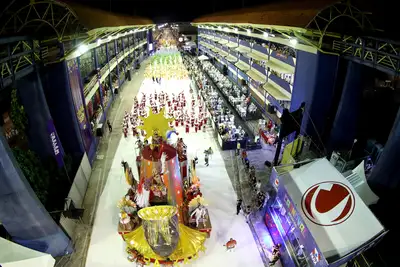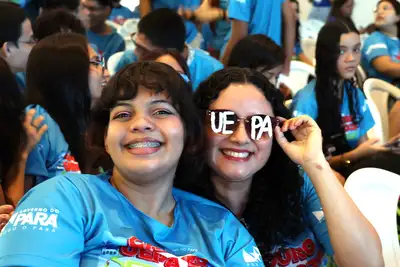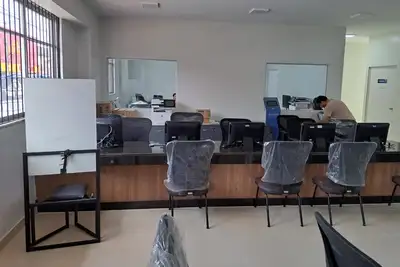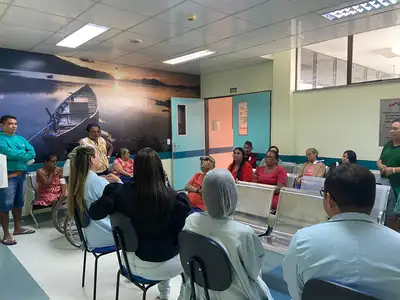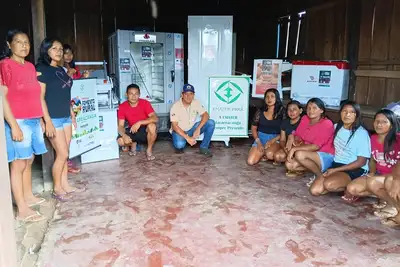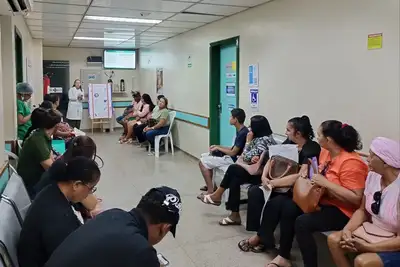Environmental education projects in state conservation units are highlights at COP30
Actions by Ideflor-Bio in the Utinga state parks in Belém and the Serra dos Martírios/Andorinhas in São Geraldo do Araguaia engage schools and communities in nature preservation
"Environmental education as an instrument of environmental management in the 29 state conservation units of Pará" was the theme of the panel promoted by the Institute of Forest Development and Biodiversity (Ideflor-Bio) at the Pará Pavilion in the Green Zone of COP30 this Wednesday (19). The debate focused on actions specifically carried out in the Utinga state parks in Belém and the Serra dos Martírios/Andorinhas in São Geraldo do Araguaia.
It was highlighted that the work carried out by Ideflor-Bio teams engages schools and communities living near state conservation units, especially on the theme of environmental preservation, through knowledge and activities that allow contact with nature.
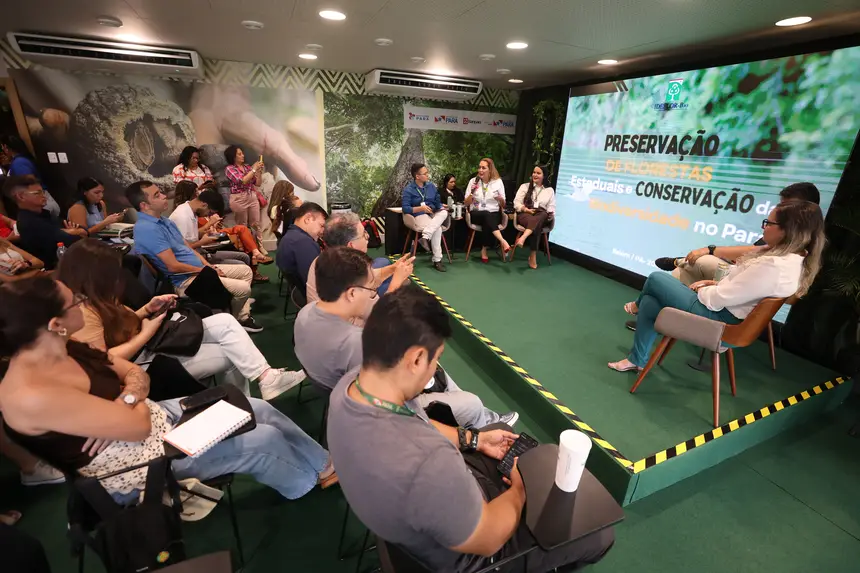
The panel was moderated by Ideflor-Bio's administrative analyst, Carla Oliveira, and included the participation of the manager of the Administrative Region of Belém, Júlio Meyer; environmental analysts Sineide Vasconcelos and Deiliany Oliveira; and the manager of the Araguaia Administrative Region, Laís Mercedes.
Looking at Youth - Júlio Meyer emphasized the importance of the presentation to publicize the results and inspire other environmental education projects in Brazil and around the world. He also highlighted that the environmental education projects developed in the Utinga Camillo Vianna State Park encompass all age groups but pay greater attention to children and young people.
"We have a deficit of contact with nature among children and adolescents due to entertainment based on cell phones. If we do not develop actions like those we do at Ideflor-Bio today, we will no longer have guardians of nature. That is why we develop these initiatives with greater attention to this audience, so that they have this contact and engage in the preservation of the Amazon," emphasized the manager.
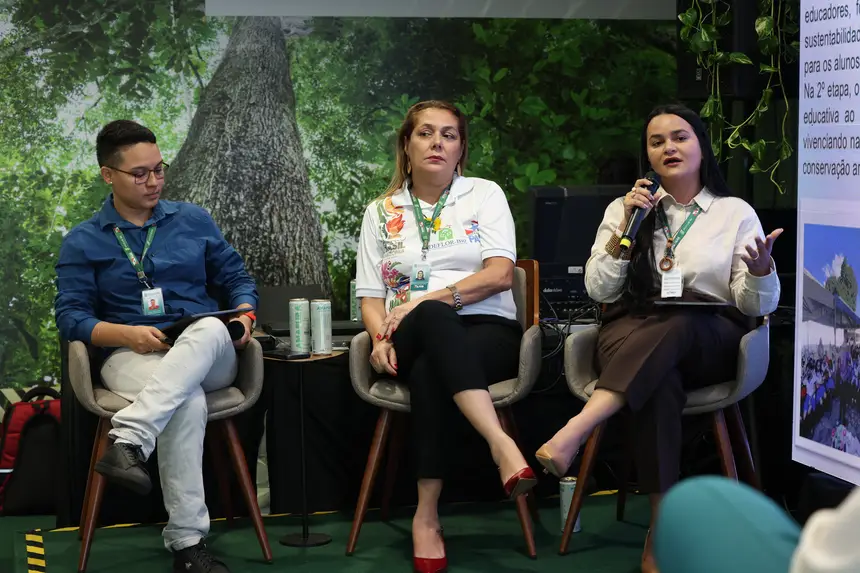
Ideflor-Bio in Schools - Deiliany Oliveira emphasized that actions with public and private schools, carried out by the Institute in the Utinga State Park and in educational units, allow children, young people, teachers, and other staff from these learning spaces to become multipliers of the environmental cause.
"When schools visit our Park and get to know the various experiences we offer, they realize the many advantages of having environmental education on the agenda, as well as the importance of having conservation units to protect our forests," she emphasized. The environmental analyst also highlighted that the Park has already received more than a thousand students from public schools, who participated in educational activities such as courses, lectures, and workshops.
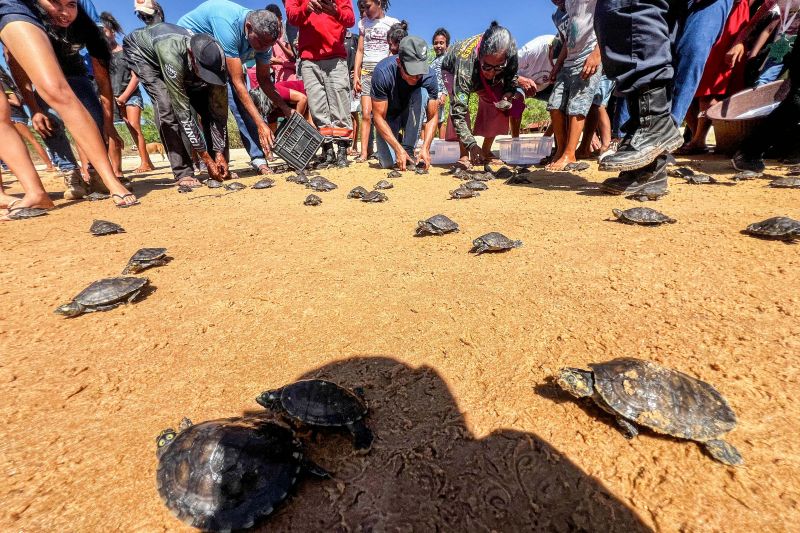
Turtle Protection - The panel also presented the environmental education actions developed by the Araguaia Administrative Region Management (GRA), especially the Araguaia Turtles Project, in partnership with the Xambioá Environmental Institute (IAX) and other public and private entities in São Geraldo do Araguaia.
According to Laís Mercedes, the action allows children and young people to learn about turtles, as well as educating them to help preserve these animals. "It is a project that, like another, the Serra das Andorinhas at School, helps our youth understand the importance of environmental preservation. With this activity, they help us identify nesting sites, allowing the species to survive and protect these living beings that are so important to our Amazon rivers," emphasized Laís Mercedes.
Text: Sinval Farias, with the supervision of Vinícius Leal - Ascom/Ideflor-Bio



